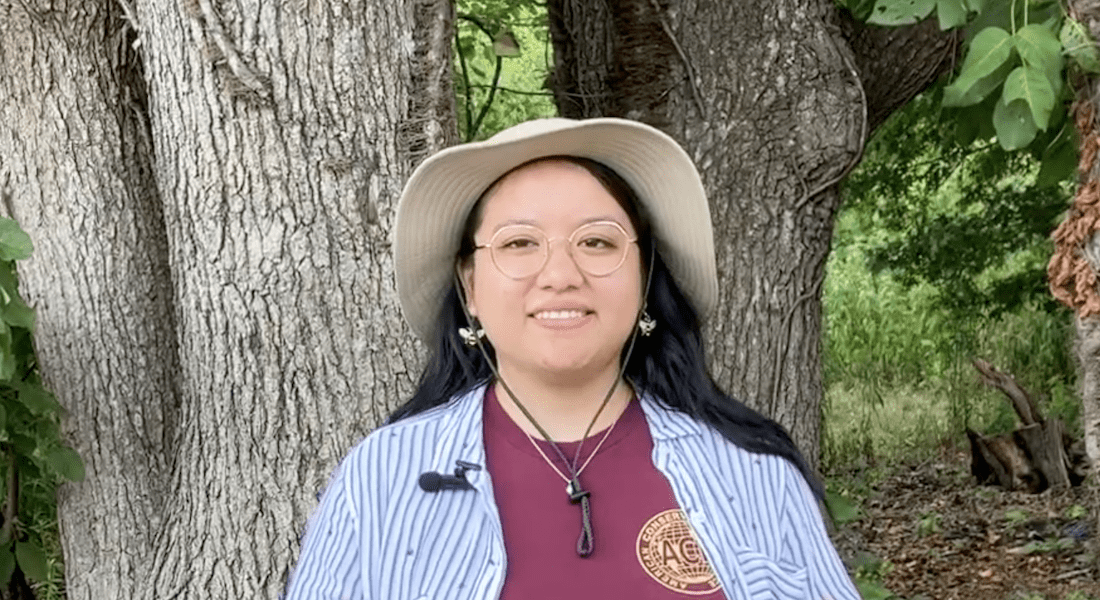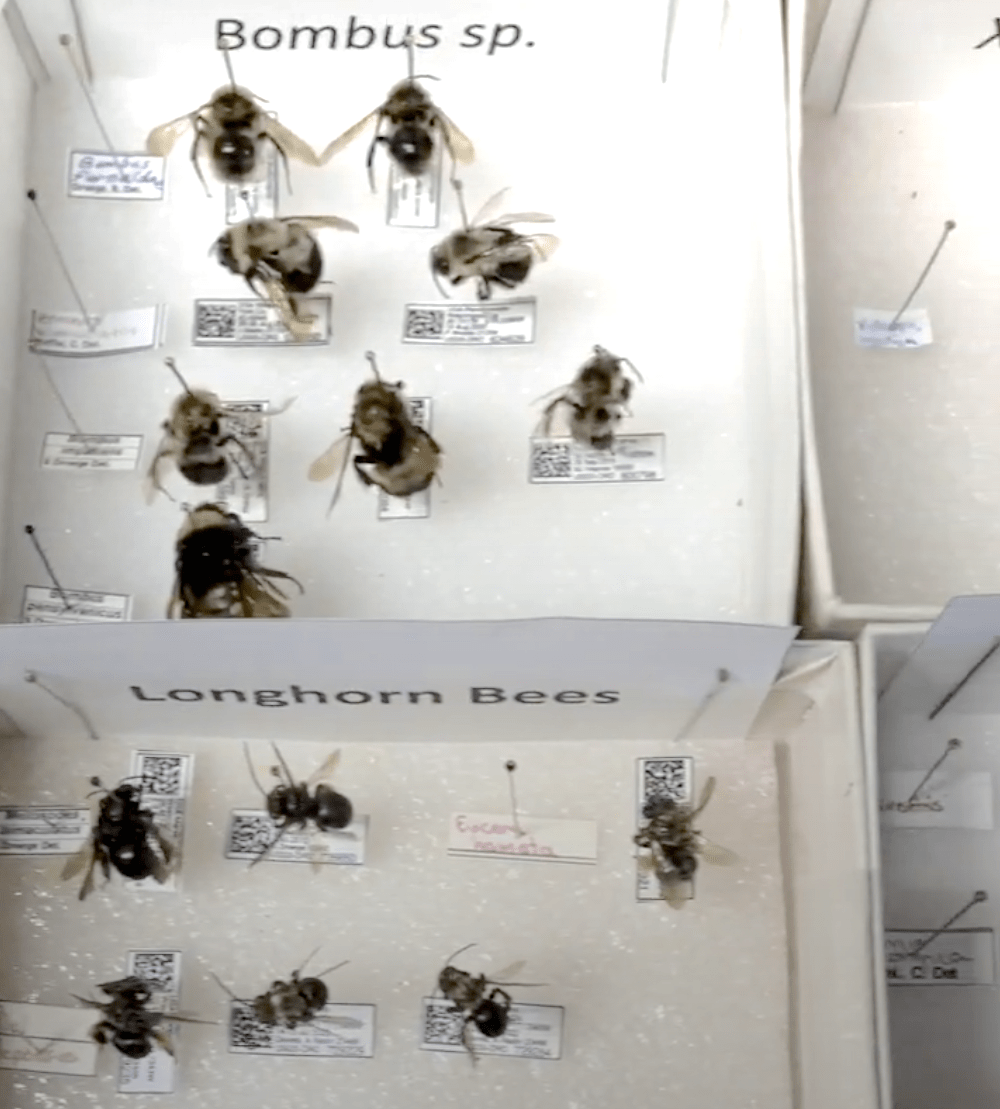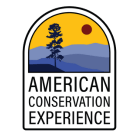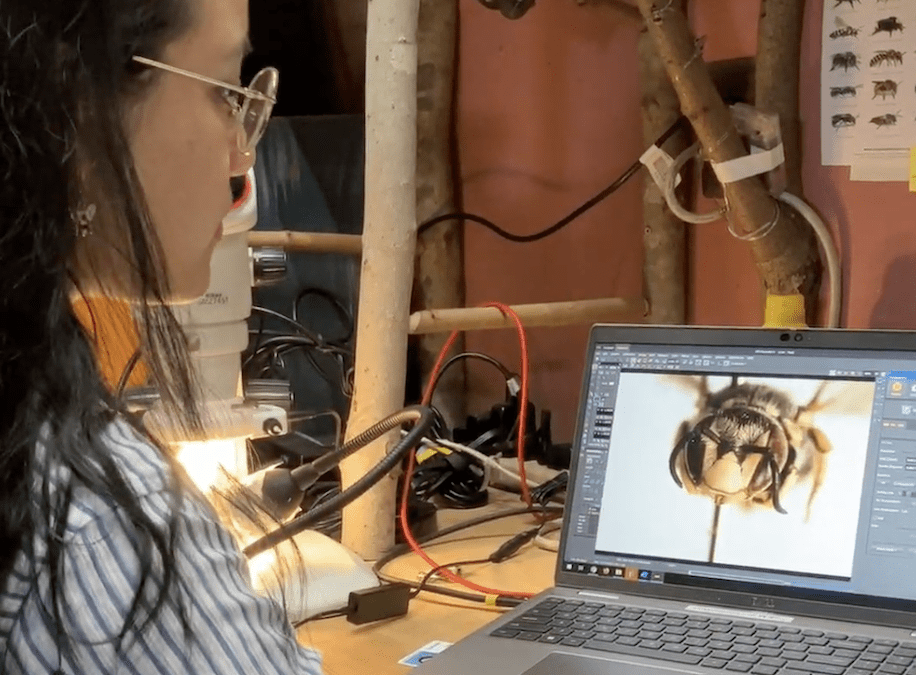Pollinator Power: An EPIC Member’s Impact at the Bee Lab
We recently checked in with EPIC member, Sally L, who is serving at a national Native Bee Lab where she’s connecting science and communities for bee conservation efforts. We sincerely appreciate the amazing work by Sally as conservationists work together to support the survival of these essential pollinators.

What is your agency role and where do you serve?
I work at the U.S. Geological Survey/U.S. Fish and Wildlife Service Native Bee Lab as a Bee Lab Support Member with FWS through the ACE EPIC program. The lab is located at the Patuxent Research Refuge in Laurel, Maryland. My position is part of a national pollinator team, housed in the FWS’s National Wildlife Refuge System’s Inventory and Monitoring Branch.
What are some of your key responsibilities?
In my current role, I support the FWS National Wildlife Refuge System and FWS federal, state, and NGO partners with bee surveys by communicating with projects throughout their life cycle to provide support where needed. However, my primary responsibility is to preserve, provide preliminary genus- and species-level identifications, and database bee specimens. We receive around 8,000 to 12,000 specimens a year in varying stages of completion; some come in as “raw bees,” meaning they are collected straight from the field and require washing, drying, and pinning, while others are sent in already pinned, needing only final identification and entry into the lab’s database. In collaboration with the national pollinator team, I help provide technical guidance to refuge staff on survey techniques by revising protocols and developing standard operating procedures for both field and laboratory methods. I also created training videos on bee survey and processing techniques to further support field staff and technicians.

I also help update and improve native bee identification guides on the Discover Life website (https://www.discoverlife.org/), which is an online repository for species identification guides and includes photos, information, and links to more information on other sites. My work with Discover Life involves keeping content up to date with new publications, writing guides to enhance accessibility for new users, and taking high-resolution microscope photographs to improve the identification guides. The guides are used as a standard tool around the world for identifying bee specimens.
One of my favorite parts of my position is the opportunity to design and lead diverse outreach events that engage a variety of audiences, such as teaching at summer camps, leading seminars and nature walks for adults, tabling at festivals, and volunteering at community events. I support these events by creating outreach material, such as posters and stickers, to increase the Lab’s visibility and improve communication at events. I find it rewarding to find ways to make science more accessible.
What are some of the key things you are learning through this experience?
One of the most valuable lessons I’ve learned through this position is how to be a more effective public speaker. Engaging with different audiences has taught me the importance of tailoring my presentations based on the interests, backgrounds, and comprehension levels of my audience. I didn’t have as many opportunities to speak to different audiences at my university, but this position gave me plenty of opportunities to step outside my comfort zone and grow my confidence in sharing scientific information to a broader audience.
Do you feel this experience will help you with your career goals/plans? If yes, in what ways?
Absolutely! I initially applied for this position because I wanted to improve my bee species identification skills and get more connected to other bee biologists. Working closely with various stakeholders in the pollinator conservation community has reinforced my desire to pursue a career in pollinator conservation. I’ve developed valuable professional relationships and learned a lot about the collaborative nature of conservation work, which will be valuable as I advance in this field.
The hands-on experience I’ve gained here has allowed me to go back to identify the bees I collected for my Master’s thesis research to species level. This position has also strengthened my confidence in my abilities as a biologist.

